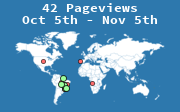"The axiological conflict between cultural pluralism and the universality of fundamental rights: the case of indigenous infanticide in Brazil"
o caso do infanticídio indígena no Brasil
DOI:
https://doi.org/10.61541/xn8fgy53Keywords:
human rights, challenges, conflicts.Abstract
Indigenous infanticide is a reality in some villages in Brazil, considered a cultural practice, which collides with the national legal system, as well as with the International Human Rights Treaties incorporated into the domestic legal system, challenging the search for a legal solution aimed at the pacification of this conflict. This article seeks to address the dilemma by positioning the indigenous person as a national citizen and, consequently, with the clear need to submit to national laws; with the clarity that this conflict requires a more in-depth discussion, making it necessary to observe sociological and anthropological perspectives, in addition to the legal one. It is imperative to study the theories of Relativism and Universalism to understand the phenomenon that originates and explains the practice of indigenous infanticide. The dichotomy created between cultural diversity and Human Rights, and the possibility or not of their convergence. Furthermore, the article seeks to understand the indigenous dynamic in the country, the treatment given to them throughout Brazil's historical and legal process up to the current Federal Constitution and the provisions that deal directly with the indigenous person, their current status as a citizen, and the consequences of this new perception.
References
BARBOSA, Marco Antonio. Direito antropológico e terras indígenas no Brasil. São Paulo: Plêiade, 2001.
BARRETO, Vicente de Paulo. Multiculturalismo, Direitos Humanos e Cidadania. São Paulo: Almedina, 2011.
BRASIL. Câmara dos Deputados. Projeto de Lei n.º 1.057, de 11 de maio de 2007. Dispõe sobre o combate às práticas tradicionais nocivas e a proteção dos direitos fundamentais das crianças indígenas, bem como das pertencentes a outras sociedades não tradicionais. Brasília, DF, 2007. Disponível em: https://www.camara.leg.br/proposicoesWeb/fichadetramitacao?idProposicao=353457. Acesso em: 16 set. 2025.
CAPEZ, Fernando. Curso de Direito Penal: parte especial. 8. ed. vol. 2. São Paulo: Saraiva, 2008.
CARNEIRO DA CUNHA, Manuela. Os direitos do índio. São Paulo: Brasiliense, 1987.
FEITOSA, Saulo Ferreira; TARDIVO, Carla Rúbia Florêncio; CARVALHO, Samuel José de. Bioética, cultura e infanticídio em comunidades indígenas brasileiras: o caso Suruahá. Cadernos de Saúde Pública, Rio de Janeiro, v. 26, n. 5, 2010.
GONÇALVES, M. Maia. Código Penal português anotado e comentado e legislação complementar. 11. ed. Coimbra: Almedina, 1997.
HUNGRIA, Nélson. Comentários ao Código Penal. 5. ed. Rio de Janeiro: Forense, 1979. v. 5.
IBGE. Panorama do Censo 2022: Indicadores. Rio de Janeiro: IBGE, 2022. Disponível em: https://censo2022.ibge.gov.br/panorama/indicadores.html. Acesso em: 8 abr. 2025.
JUNQUEIRA, Carlos Pagliaro. Recuperação demográfica e fecundidade dos Kamaiurá, povo Tupi do Parque Indígena do Xingu, Brasil Central, 1970-2003. Saúde e Sociedade, São Paulo, v. 16, n. 2, 2007.
MUAKAD, Irene Batista. O infanticídio: análise da doutrina médico-legal e da prática judiciária. São Paulo: Mackenzie, 2002.
NUCCI, Guilherme de Souza. Código penal comentado: estudo integrado com processo e execução penal: apresentação esquemática da matéria: jurisprudência atualizada. 14. ed. rev., atual. e ampl. Rio de Janeiro: Forense, 2014.
ORGANIZAÇÃO DAS NAÇÕES UNIDAS. Comitê dos Direitos da Criança. Recomendação geral n.º 31/Comentário geral n.º 18 sobre práticas nocivas. [S. l.], 2014.
PETIÇÃO 3388/STF. Voto do Ministro Lewandowski. Supremo Tribunal Federal, Brasília, DF. Disponível em: http://www.stf.jus.br/arquivo/informativo/documento/informativo517.htm. Acesso em: 19 mar. 2025.
PÉREZ LUÑO, Antonio Enrique. La Tercera Generación de Derechos Humanos. Revista da Faculdade de Direito da Universidade Federal de Juiz de Fora, Juiz de Fora, v. 1, n. 1, 1995.
SANTOS FILHO, Roberto Lemos dos. Apontamentos sobre o direito indigenista. Curitiba: Juruá, 2008.
SUZUKI, Márcia dos Santos (org.). Quebrando o silêncio: um debate sobre o infanticídio nas comunidades indígenas do Brasil. Brasília, 2007.
SYKES, Gresham M.; MATZA, David. Techniques of Neutralization: A Theory of Delinquency. American Sociological Review, Washington, D.C., v. 22, n. 6,1957.
VILLARES, Luiz Fernando. Direito e povos indígenas. Curitiba: Juruá, 2009.
VILLÁN DURÁN, Carlos. Significado e alcance da universalidade dos direitos humanos na Declaração de Viena. In: ESTUDOS BÁSICOS EM DIREITOS HUMANOS. San José da Costa Rica: Instituto Interamericano de Direitos Humanos, 1995. Tomo II.
Downloads
Published
Data Availability Statement
The data used for the preparation of this article are available upon request to the corresponding author, in compliance with the ethical and legal principles applicable to research in Legal Sciences. Any restrictions related to confidentiality and the protection of sensitive information will be duly observed.
Issue
Section
License
Copyright (c) 2025 Revista de Direito - Trabalho, Sociedade e Cidadania

This work is licensed under a Creative Commons Attribution-NonCommercial-NoDerivatives 4.0 International License.
Todos os trabalhos que forem aceitos para publicação, após o devido processo avaliativo, serão publicados sob uma licença Creative Commons, na modalidade Attribution-NonCommercial-NoDerivatives 4.0 International Public License (CC BY-NC-ND 4.0). Esta licença permite que qualquer pessoa copie e distribua a obra total e derivadas criadas a partir dela, desde que seja dado crédito (atribuição) ao autor / à autora / aos autores / às autoras.








